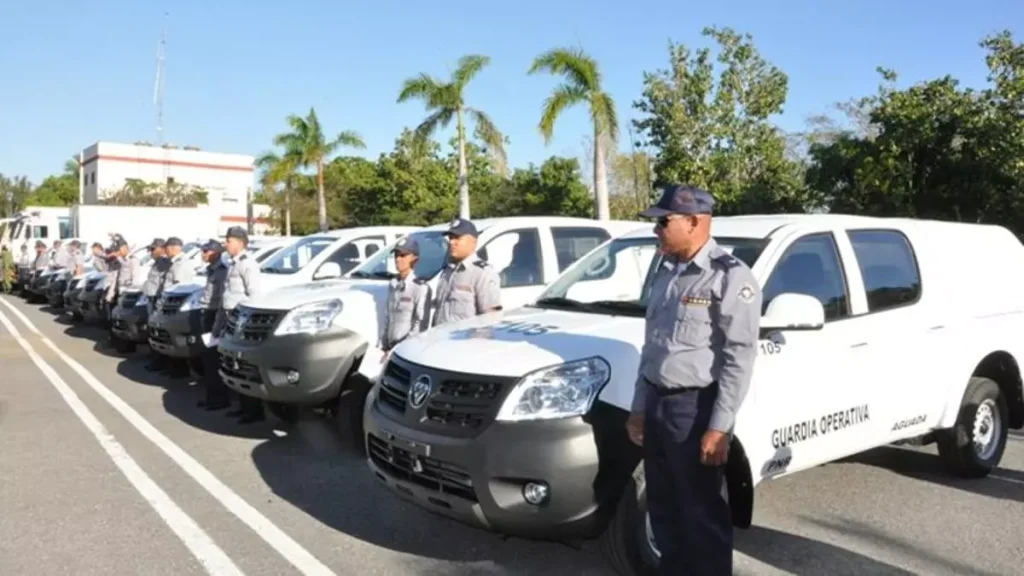Several employees in Cienfuegos disagree with these orders and fear an unstoppable reaction from the public

![]() 14ymedio, Julio César Contreras, Cienfuegos, 21 October 2024 — As the hours-long blackouts take their toll on the people of Cienfuegos, state workers can be seen standing guard at offices and public institutions on Sunday. Boards of directors have been explicitly ordered to deal with any “situation” that might arise, specifically bu discouraging demonstrations by an exhausted citizenry after three days with hardly any electricity.
14ymedio, Julio César Contreras, Cienfuegos, 21 October 2024 — As the hours-long blackouts take their toll on the people of Cienfuegos, state workers can be seen standing guard at offices and public institutions on Sunday. Boards of directors have been explicitly ordered to deal with any “situation” that might arise, specifically bu discouraging demonstrations by an exhausted citizenry after three days with hardly any electricity.
“The truth is that, if there were a protest, I wouldn’t know what to do because I too have a lot of complaints and am dissatisfied with everything that’s happening in this country,” said Humberto, a state employee who has chosen to obey orders despite any doubts he might have. “I don’t want to lose my job because it guarantees at least part of my family’s livelihood. I’m worried that this could all lead to violence that would be put down by force. Something like that would be very hard for people who are clearly tired,” he added, standing at the doorway of his workplace.
The 52-year-old Cienfuegos resident explains what his Sundays were like before he started his job and the daily challenges people like him faced beyond the lack of electricity. “Before coming here, I would go to the Pastorita buildings to look for rice so my children could eat. My wife was cooking with charcoal because we ran out of liquefied gas and we can’t afford to buy it on the open market. When they told me I should take this shift, I agreed, but I wonder what I’m defending,” he admits.
” When they told me I should take this shift, I agreed, but I wonder what I’m defending”
Mayra lives on Argüelles Street, where many companies and government offices are located. Unlike Humberto, she is not willing to participate in overnight guard duties at her workplace. “I understand that they’re afraid of what could happen but I didn’t create this crisis situation. Nor are the offices my property. If a protest does take place, I won’t do anything to stop it because [the protestors] would be defending many of the same positions that I have. I know that taking a stance like this could cost me dearly at work but I won’t do anything that goes against my principles,” she says.
Mayra explains that guard duty has been organized into 24-hour shifts. In order to prevent crowds of people from gathering, employees have been ordered to immediately contact the police if they notice anything suspicious. “I could never forgive myself for turning in innocent people. First, they would be beaten, then they would go to jail merely for openly expressing themselves. Of course, when the orders came down , there were many opportunists here who were happy to oblige, as though it were a heroic act. I’m not braver than anyone else but I have my dignity,” says Mayra. Though she declined to reveal exactly what she does professionally, she has said that her job has something to do with the provincial People’s Power Assembly.
Workers are being called upon to guard both open and closed spaces. For example, on the Paseo and El Prado soldiers and dozens of individuals from the Communist Party and other government agencies have been tasked with ensuring public order. Meanwhile, residents of the surrounding neighborhoods sit in doorways and on sidewalks trying to escape the heat, the mosquitoes and the hours of tension.
“This country is like a huge minefield that is about to explode”
“No one really knows how long it will take to restore power so I’m on call for awhile. Other employees here have offered to pay me 200 pesos per person to cover for them,” says a man standing behind a desk in his company’s reception area. “It’s true that I have to sacrifice myself day and night but I need the money to feed my mother, who is very sick. I hope that everything will be calm and that this situation will be resolved. What I really don’t want is confrontation between Cubans, much less unjust arrests like those on 11J*. I’m afraid this will get worse than it already is,” he admits.
Two police patrol cars parked in Martí Park provide a clue as to what their role would be in the event of a public demonstration. Though seemingly calm for now, the city is under heavy guard by people who, in many instances, have been threatened with sanctions and fear losing their jobs if they do not comply. “I know that the methods to convince those of us who refuse or who are undecided are harsh. There’s a lot of fear that anything could trigger an uncontrollable reaction by the public, who have been overwhelmed by all these difficulties for many years. This country is like a huge minefield that is about to explode,” concludes Mayra, putting her hands on her head.
*Translator’s note: 11 July 2021, when mass protests broke out across the island, which led to a government crackdown.
____________
COLLABORATE WITH OUR WORK: The 14ymedio team is committed to practicing serious journalism that reflects Cuba’s reality in all its depth. Thank you for joining us on this long journey. We invite you to continue supporting us by becoming a member of 14ymedio now. Together we can continue transforming journalism in Cuba.
